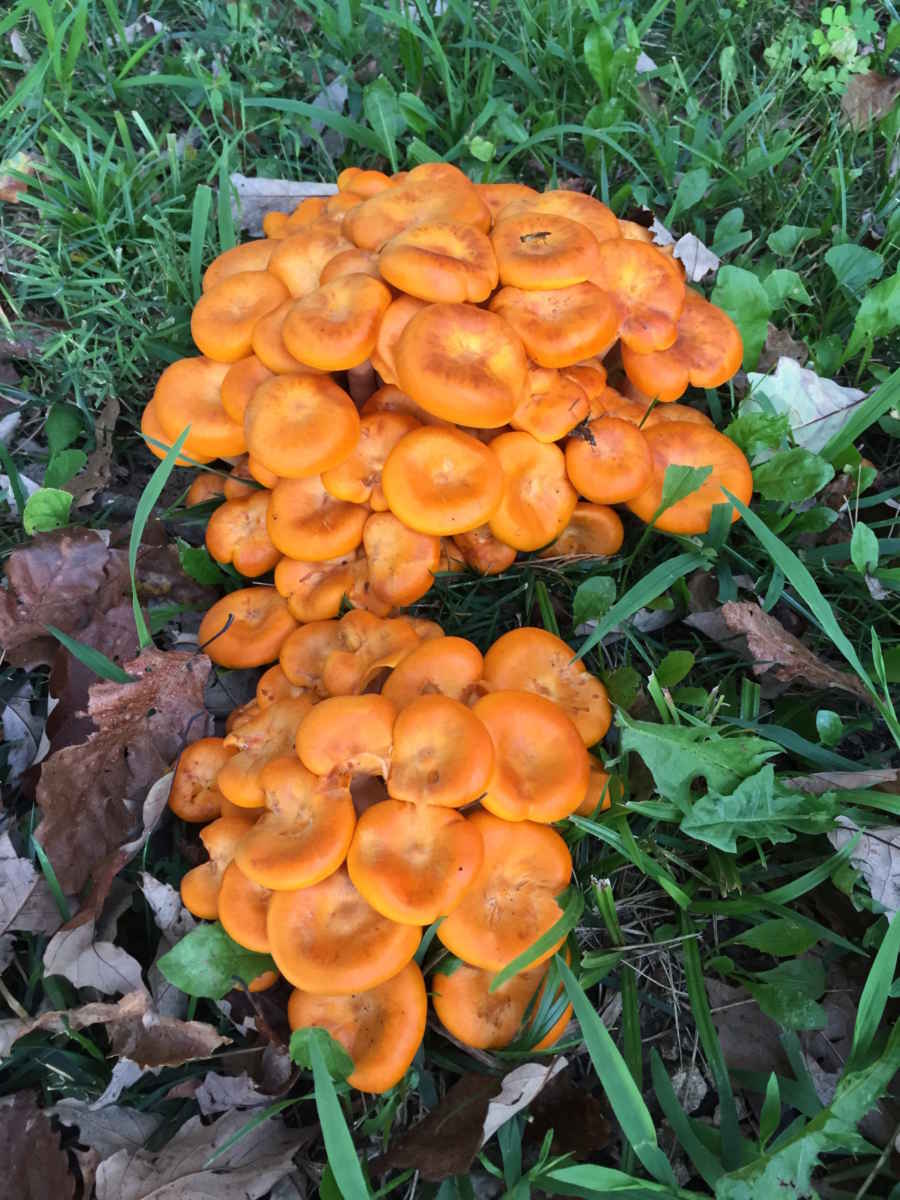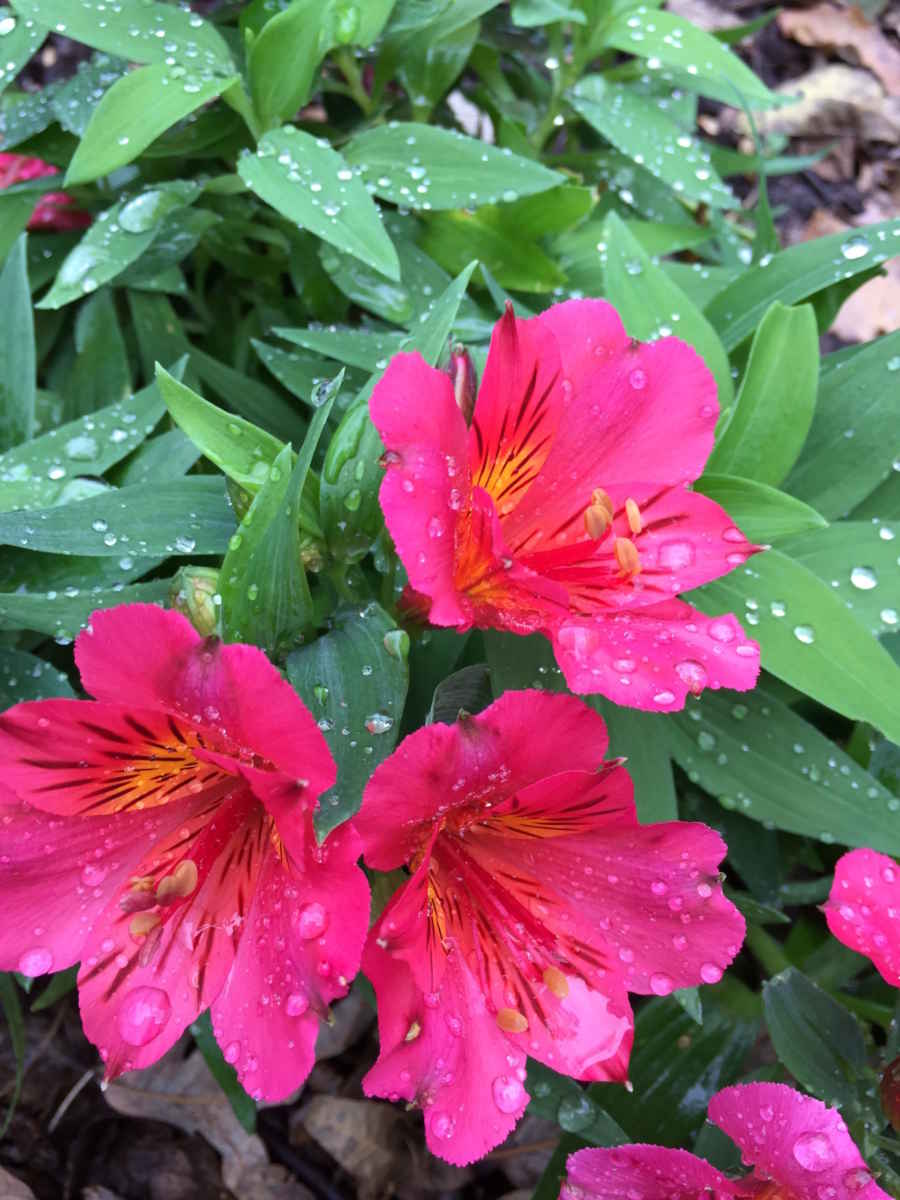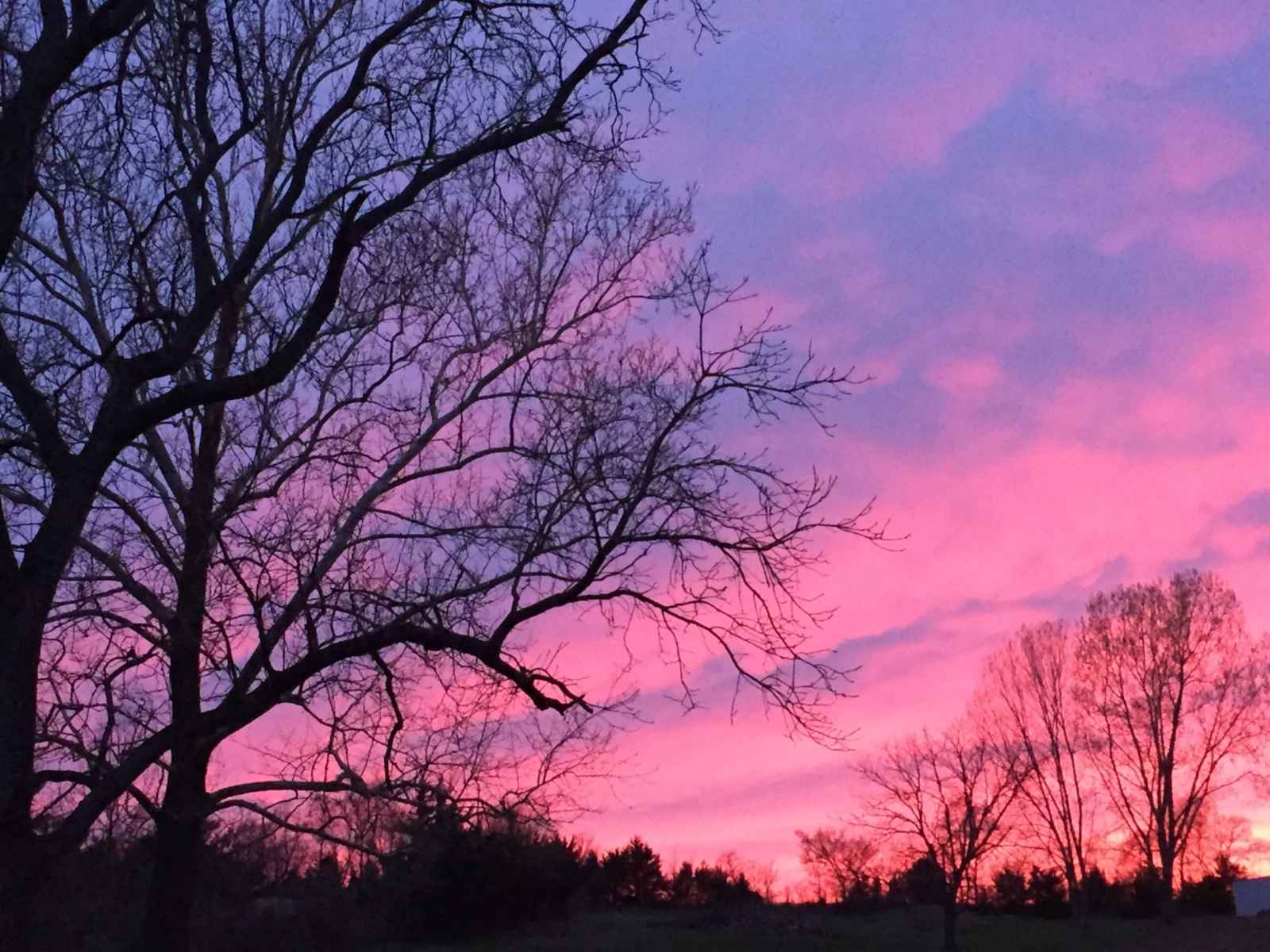Category: Pondering Peace
Earth’s Caretakers
By Ruth Rosell, Director of the Buttry Center for Peace and Nonviolence
National Geographic regularly shows up in my newsfeed, and I find much that is intriguing. I love learning about our earth’s creatures. Did you know that mother whales whisper to their young to keep them close and safe? And I’m amazed at the beautiful landscapes of previously unheard of places. I’ve joked with my adult children that during retirement, I will spend my evenings watching the National Geographic channel.

These popped up almost overnight in our yard.
But one doesn’t have to go to exotic, faraway places to experience wonderment. I regularly feel appreciative joy in the delightful discoveries of unexpected beauty in the world around me. The earth, with its fecundity of life and diversity of creatures, is amazingly complex, intricately interconnected, and full of surprises. I easily affirm the divine expressions of appreciation over creation, as found in Genesis 1. It is indeed very good.

Flowers in our garden after the rain

Sunset during an evening walk
The poetic description of humanity’s creation in Genesis 2 emphasizes our interconnectedness with the earth. It is from the soil of the ground (in Hebrew, the word is adamah) that the first human is formed (in Hebrew, the word is adam). This little wordplay reminds us that we are made from the elements of the earth. As our bodies were made from the soil, they again become part of the soil in death. Our lives at their most elemental level are intricately interrelated with the land. We are part of this earth.
However, in this narrative of origins, God gives humanity a special role as caretaker of this paradise garden. In Gen. 2:15 we read how God “took the earth creature and settled it in the garden of Eden to cultivate and care for the land.”[i]Or these words could also be translated to ‘serve it and preserve it.’[ii]With the special abilities that humans have, they are given the task of being the earth’s gardeners – to care for, watch over, and help it to flourish. What other one of God’s creatures could do this? This is humanity’s special role.
The Genesis 1 story actually says the same thing, but because of the way it has traditionally been translated, it has been taken to mean something very different. The NRSV reads that God said to humans in v. 28, “Fill the earth and subdue it; and have dominion over the fish… birds…and all living things.” Initially this sounds like humans are in charge, and they can do what they want with the earth to dominate it.
But what the text is actually saying is that, having made humans in God’s own image, God is now sharing power and placing them in dominion. God is putting them in the role of being God’s own representatives on earth, those who carry out God’s benevolent reign and care for all things, maintaining order and balance. That Hebrew word translated ‘have dominion’ (rada) “must be understood in terms of care-giving, even nurturing, not exploitation,” writes Old Testament professor Terence Fretheim.[iii]And he suggests that the word ‘subdue’ (kabas) the earth here refers to cultivating it or developing it to its fullest creational potential.
This means that people cannot simply use and abuse the earth in whatever way they want. Duke professor Ellen Davis writes, “the earth is neither a platform for human activity nor a repository of resources to be mined for our convenience. Far from being inert, the earth is living and responsive to God; it generates life, putting forth vegetation in response to God’s command.”[iv]
As those whose lives came from the soil and continue to be intricately interconnected with the wellbeing of the earth, and as those made in the image of God, designated agents of God’s benevolent reign with the power and capacity to act on God’s behalf, we are to be the caretakers of this earth, so its beauty, abundance, and balance endure for all future generations. We have been given the special capacity and mandate to do this.
The climate change crisis then is not simply a scientific problem or political problem. Nor is it solely a national or global problem. It is a spiritual problem. The initial instructions that we humans received were to be God’s caretakers and stewards of the earth, preserving this paradise as home for all creatures. This was humanity’s original purpose for being.
But instead the land has too often been ravished by human greed or violence, and its creatures languish. Greenhouse gases from burning fossil fuels, along with other industrial and agricultural practices, are warming the oceans, melting arctic ice at alarming rates, raising sea levels, changing climate patterns, and contributing to more destructive storms. Disappearing habitat and toxic pesticides are bringing many species to the brink of extinction.
Yet God is still actively working in our world to bring goodness, salvation, and wholeness. And God continues to need human partnership, just like at the beginning. God’s mercy and pardon, which grants us salvation and puts us back into a right relationship with God, is intended also to put us back into a right relationship with the earth. We are to take our proper place as caretakers, gardeners, and stewards of the earth, working with God to renew it and enable it to flourish again.
Being in right relationship to God and the earth changes our lives. It affects our personal lifestyle, as we make choices for the earth’s wellbeing. It calls us to live more simply, using only our share of the earth’s goodness. It requires us to transition to the use of renewable energy sources as quickly as possible. It encourages us to become involved in shaping policy so that creation care is prioritized. It calls on all of us to do whatever we can to be partners with God in renewing the earth.
_________________________________________________________
[i]The Inclusive Bible
[ii]Ellen F. Davis, “Knowing our Place on Earth,” The Green Bible, 2008, p. I-60.
[iii]The New Interpreter’s Bible Commentary, Vol. 1, p. 346.
[iv]Davis, p. I-59.